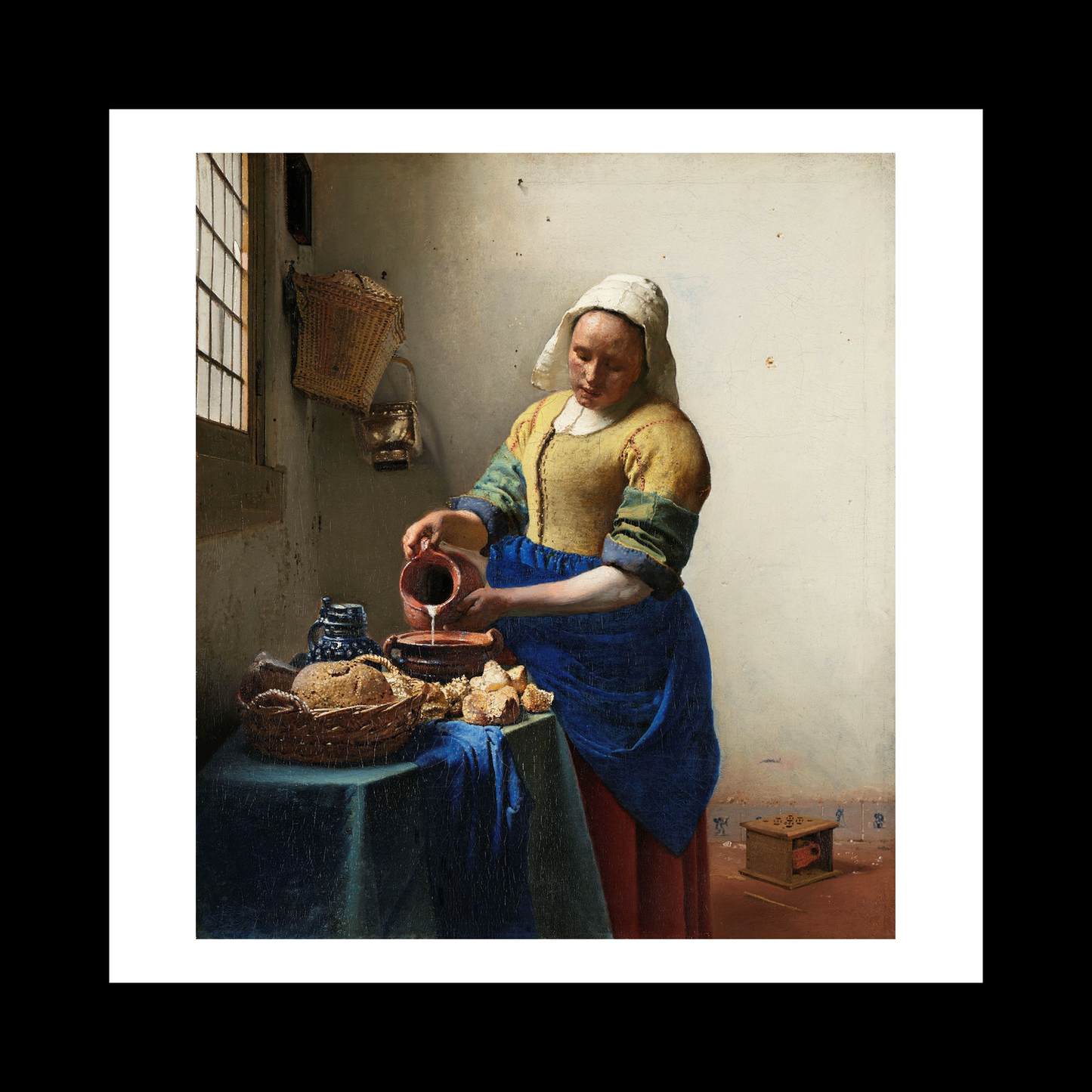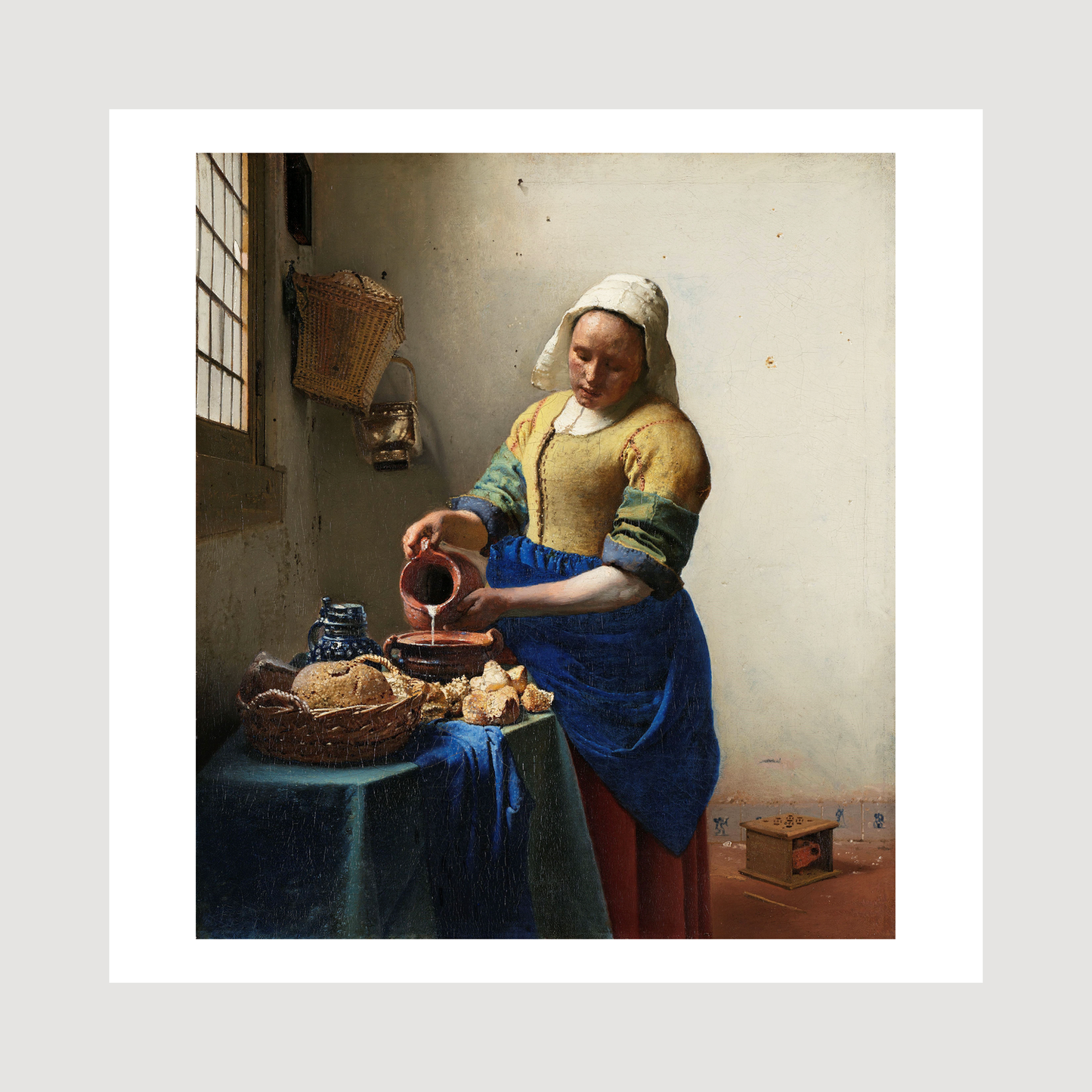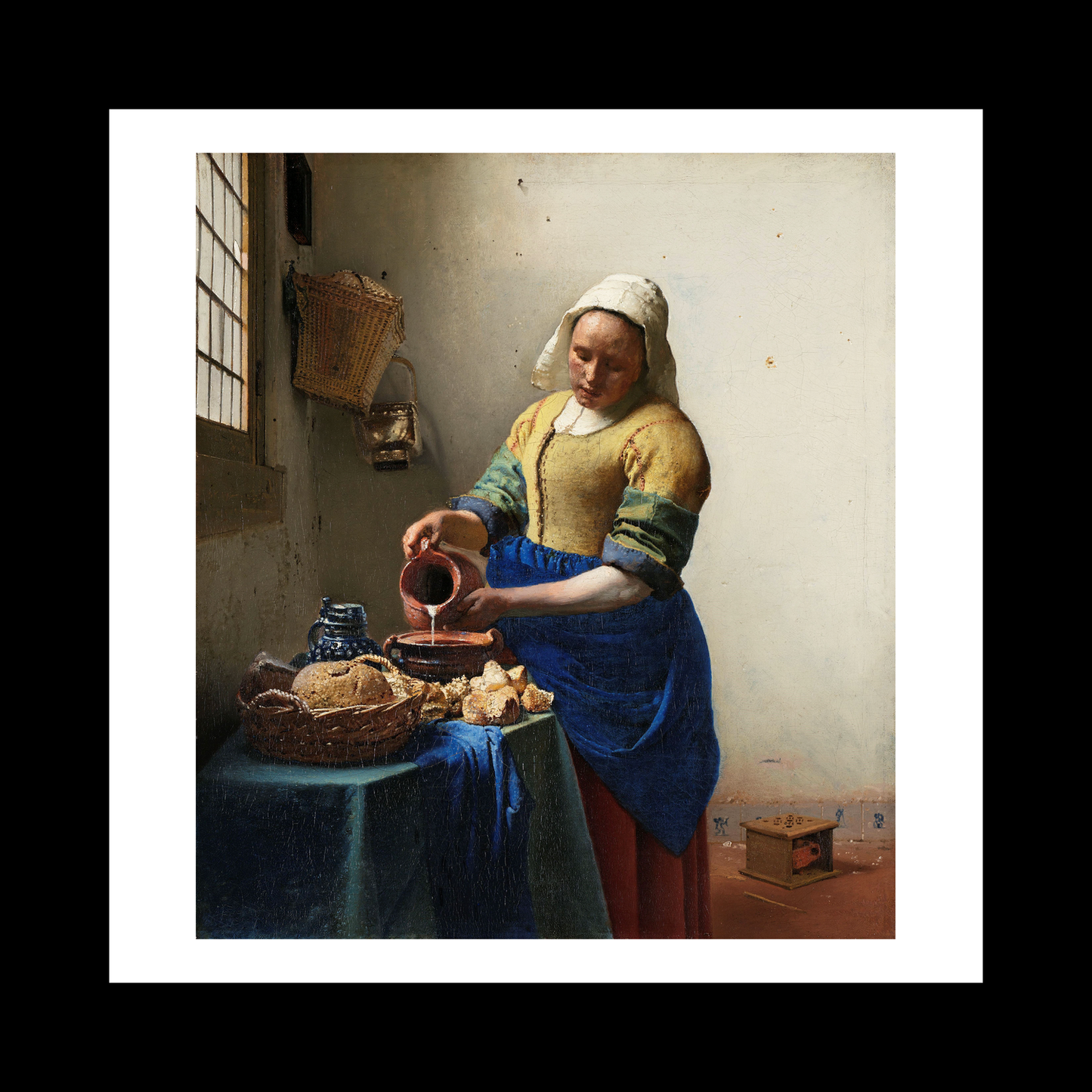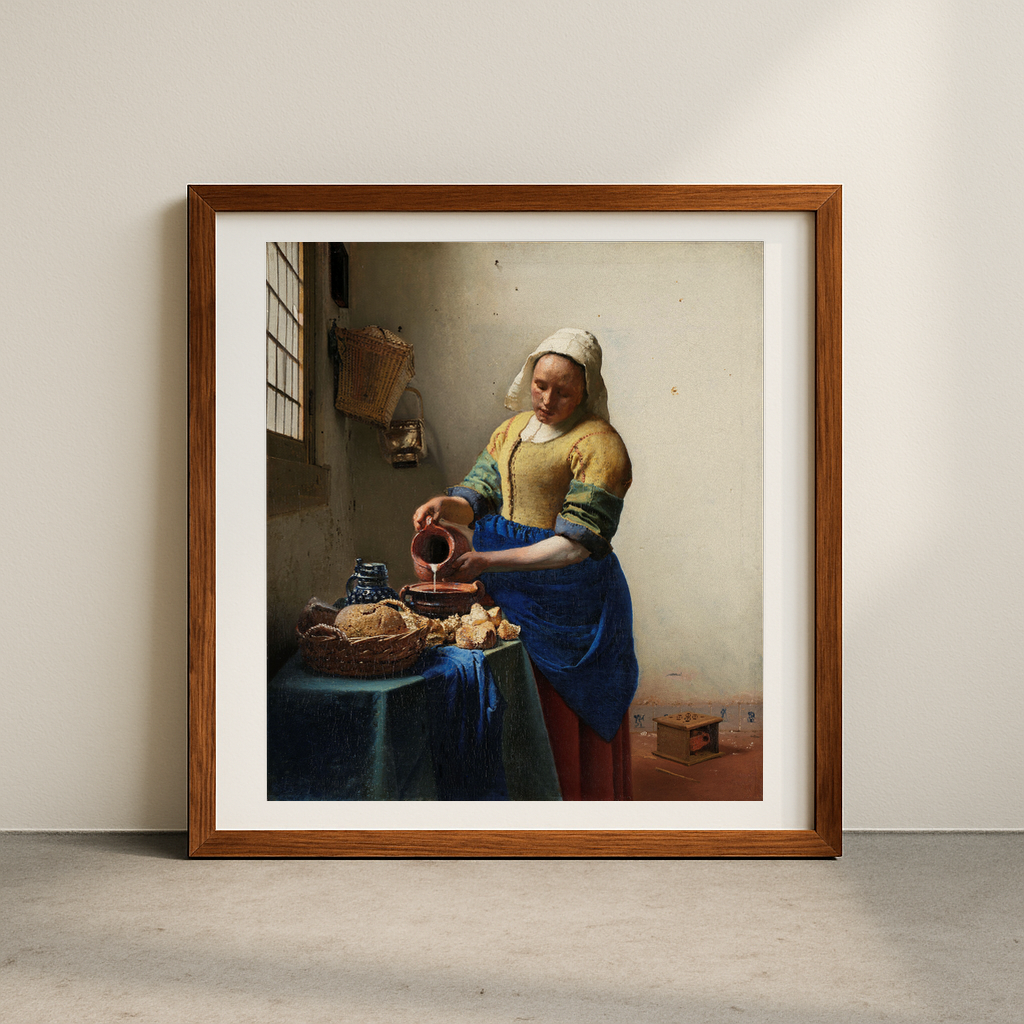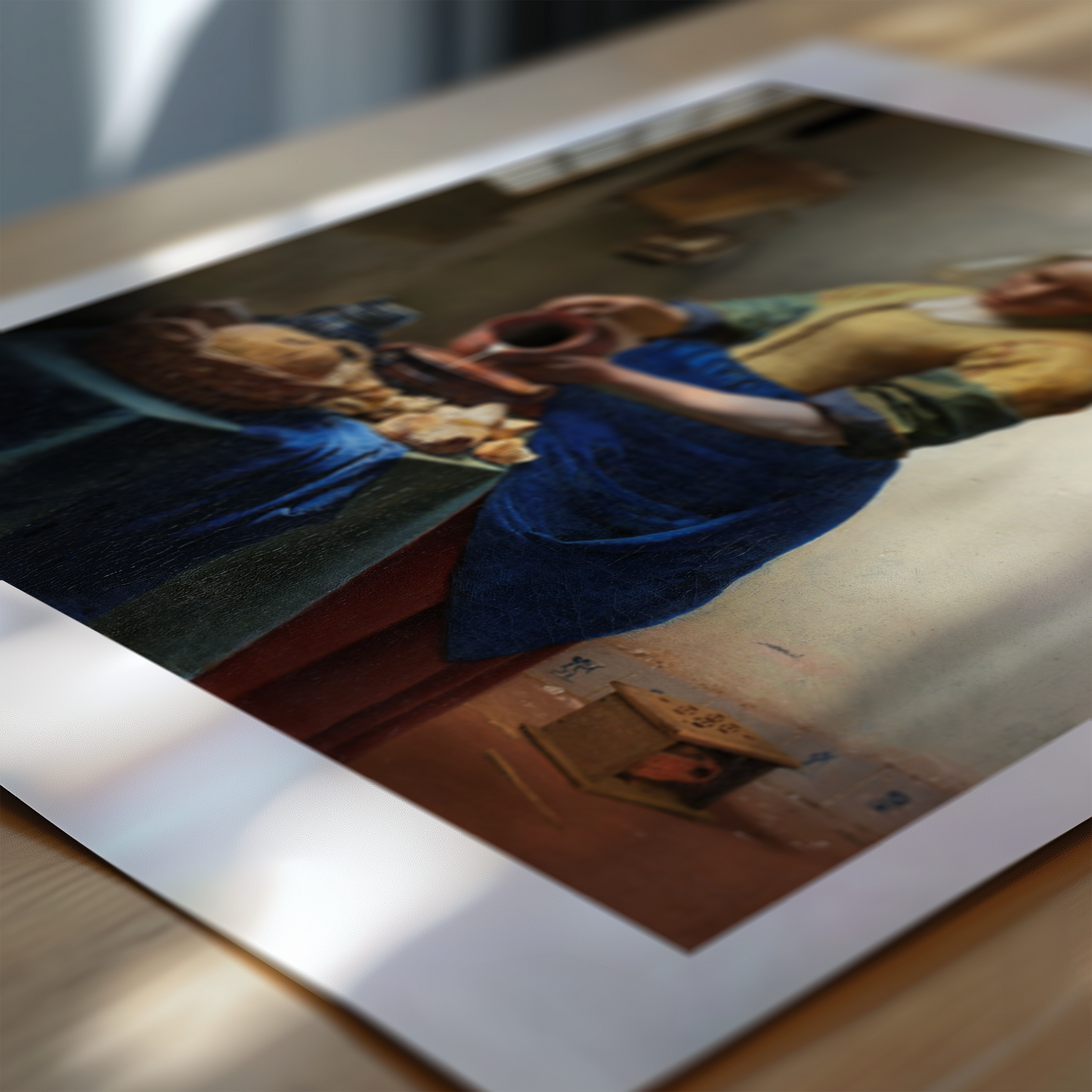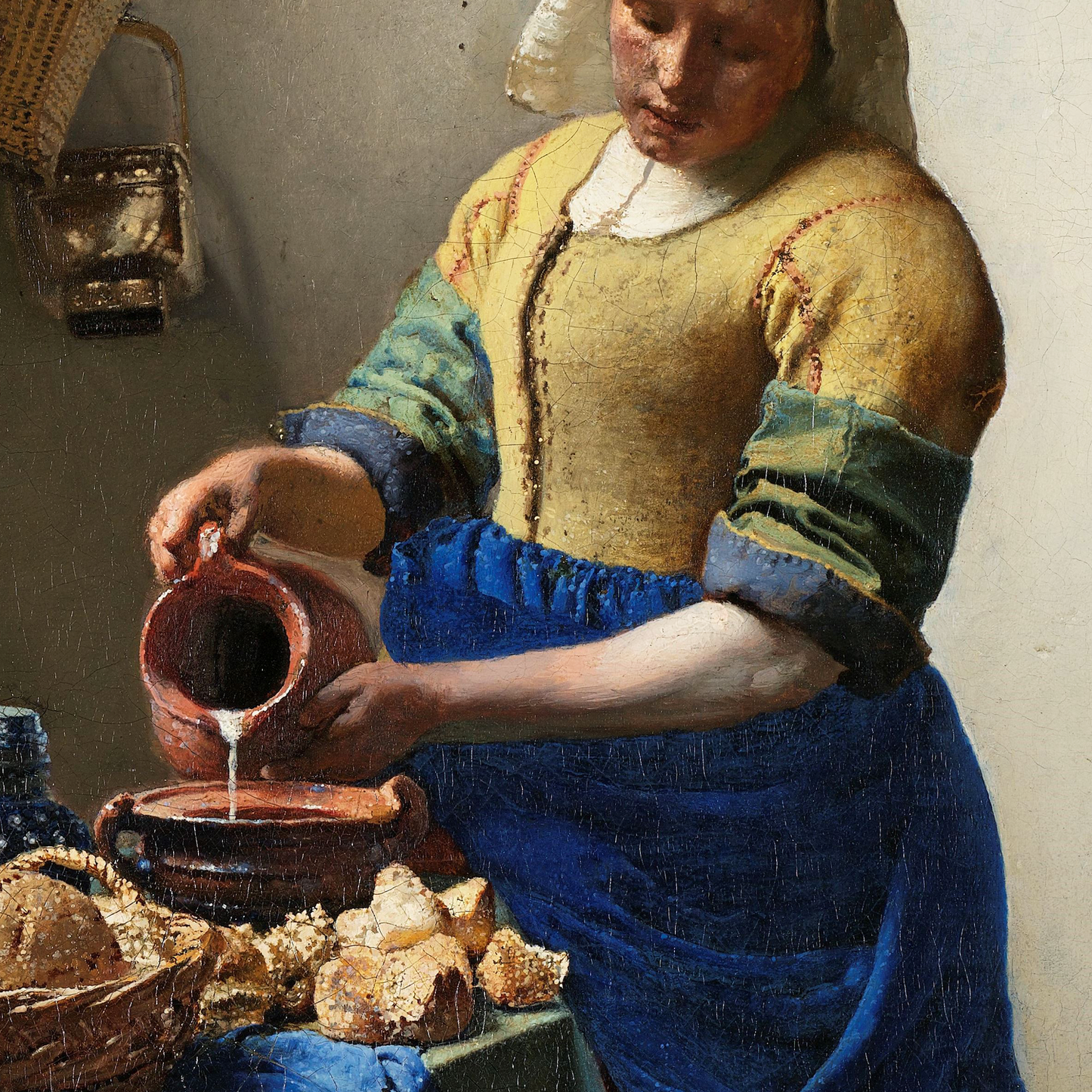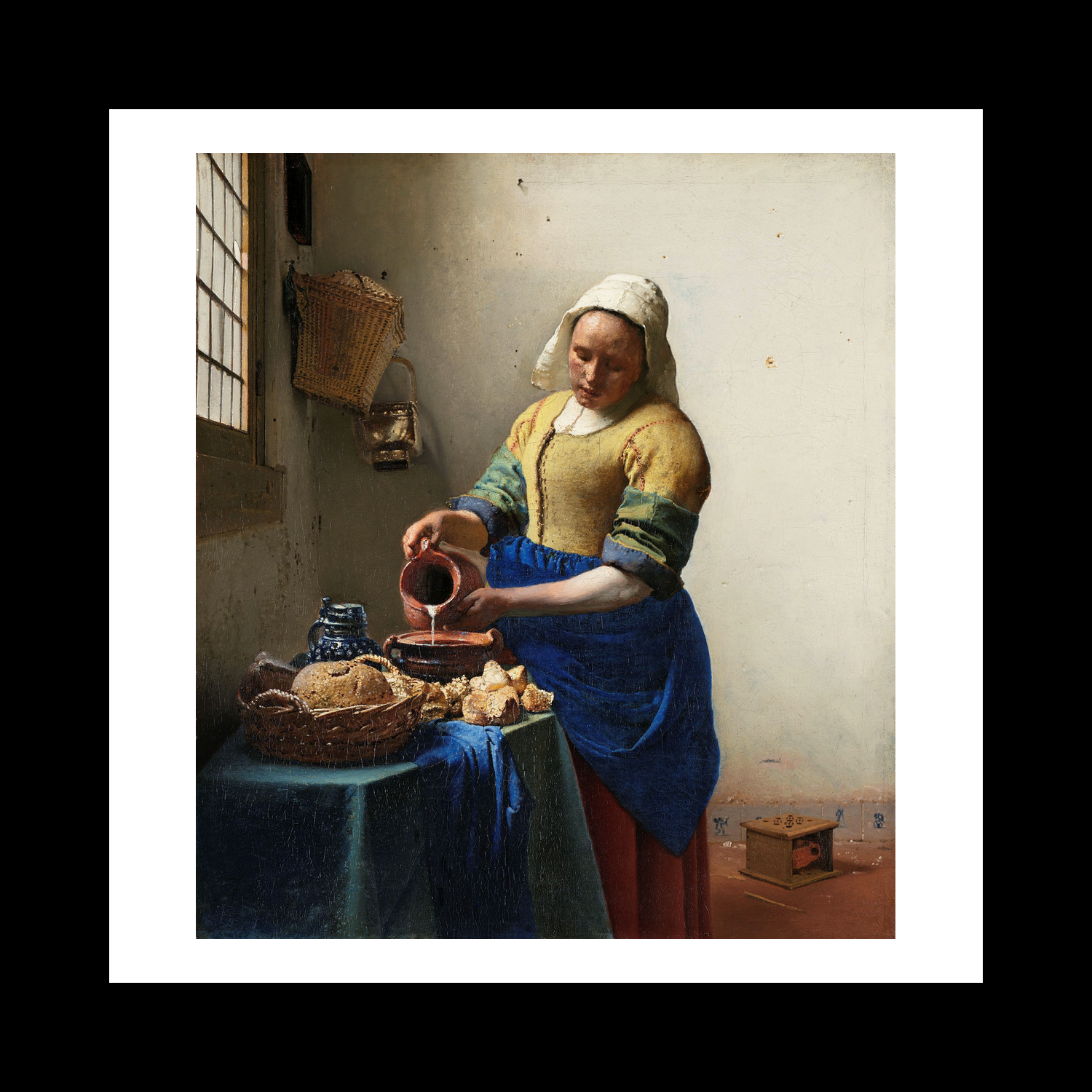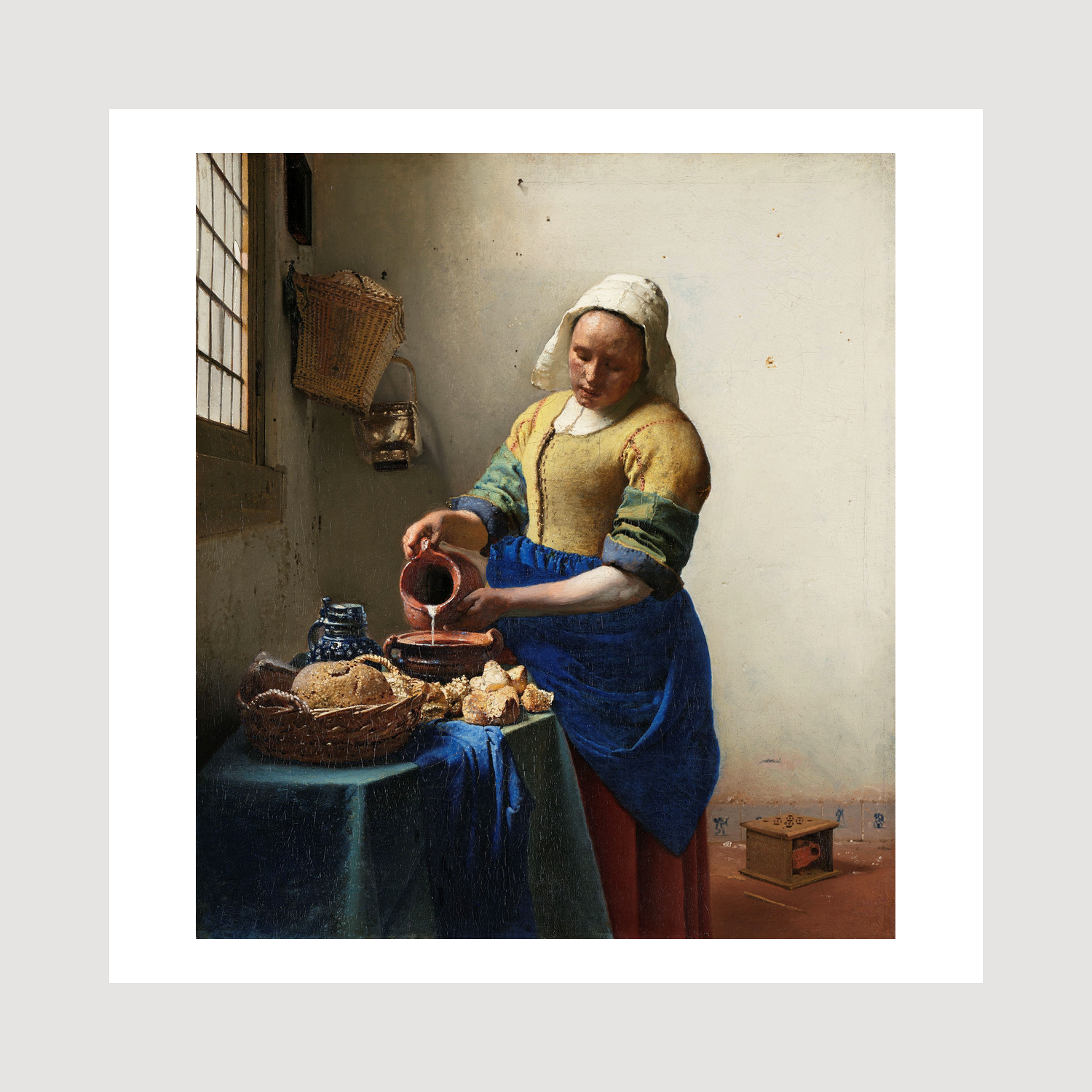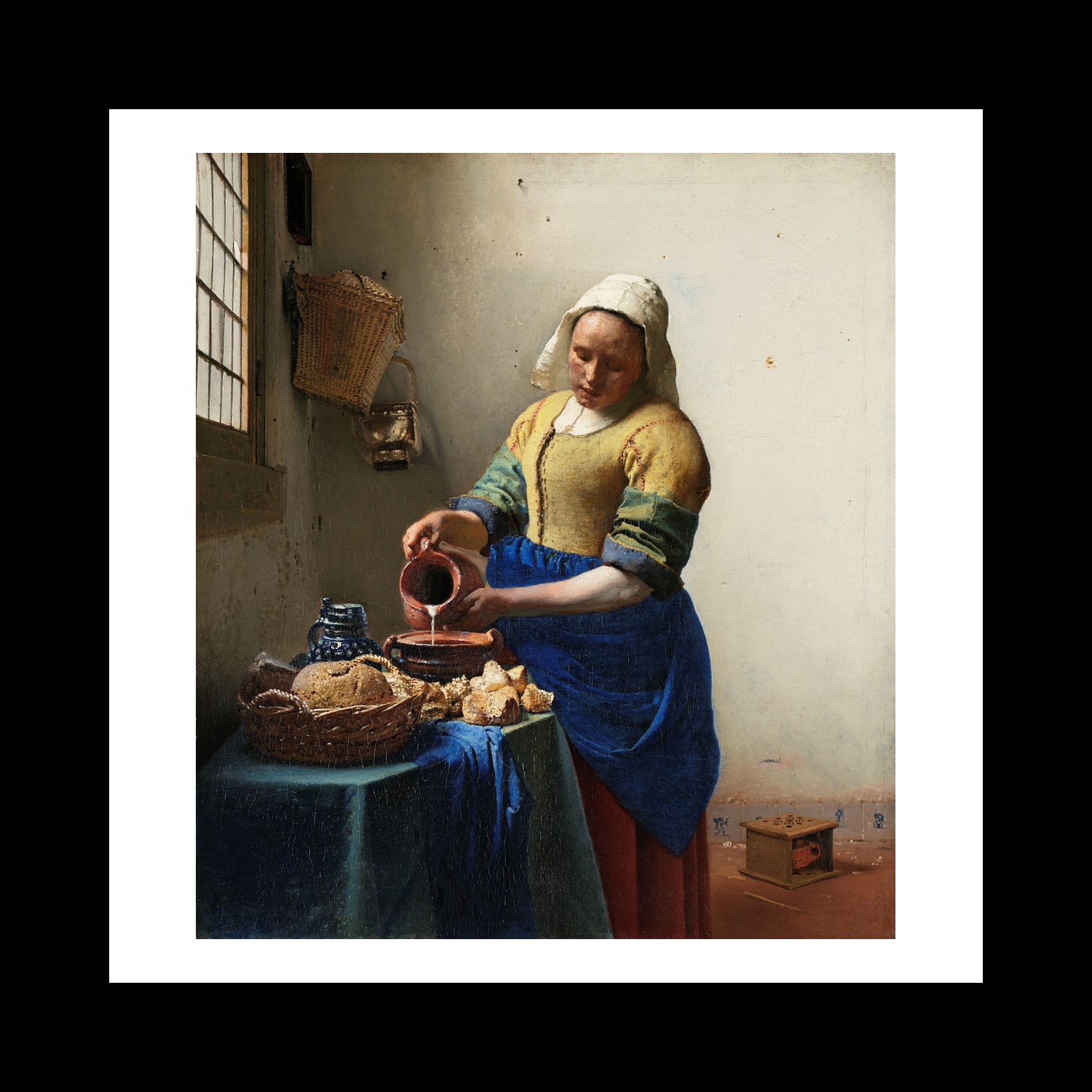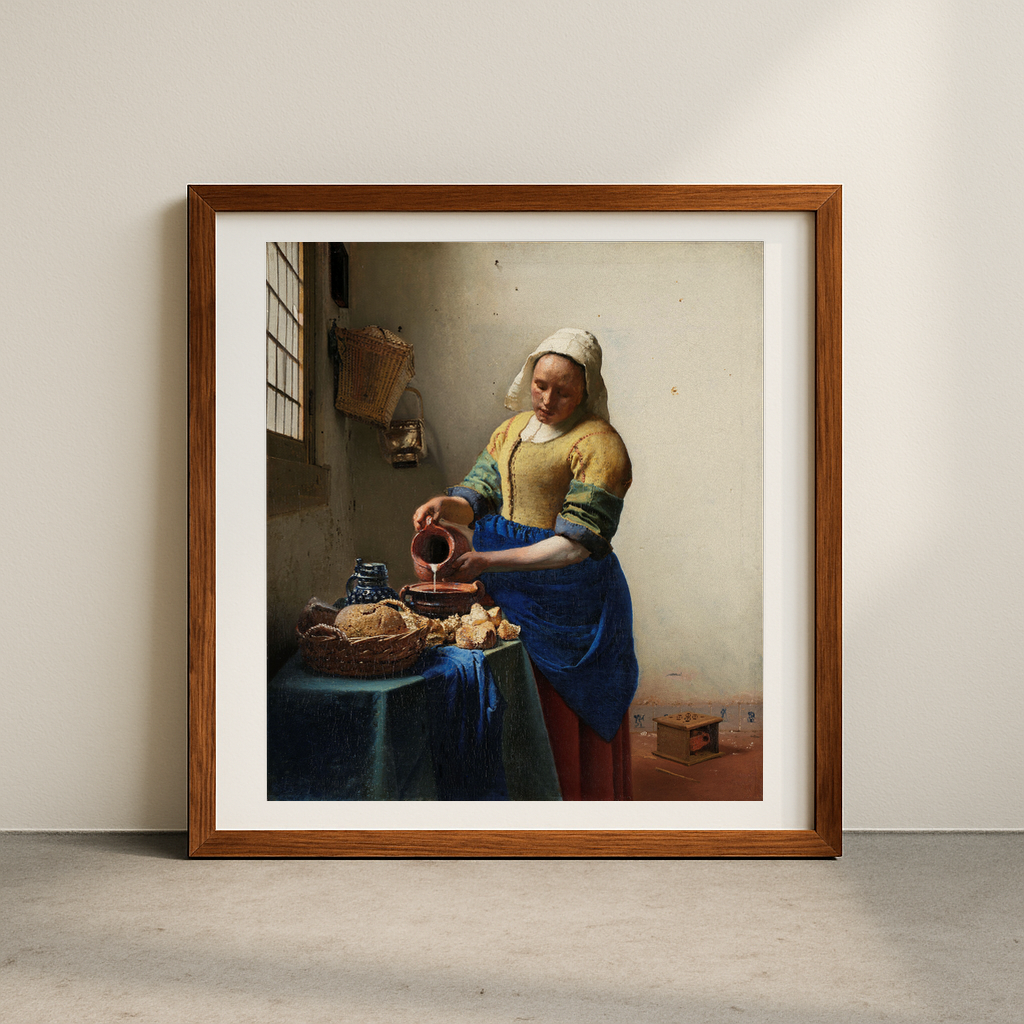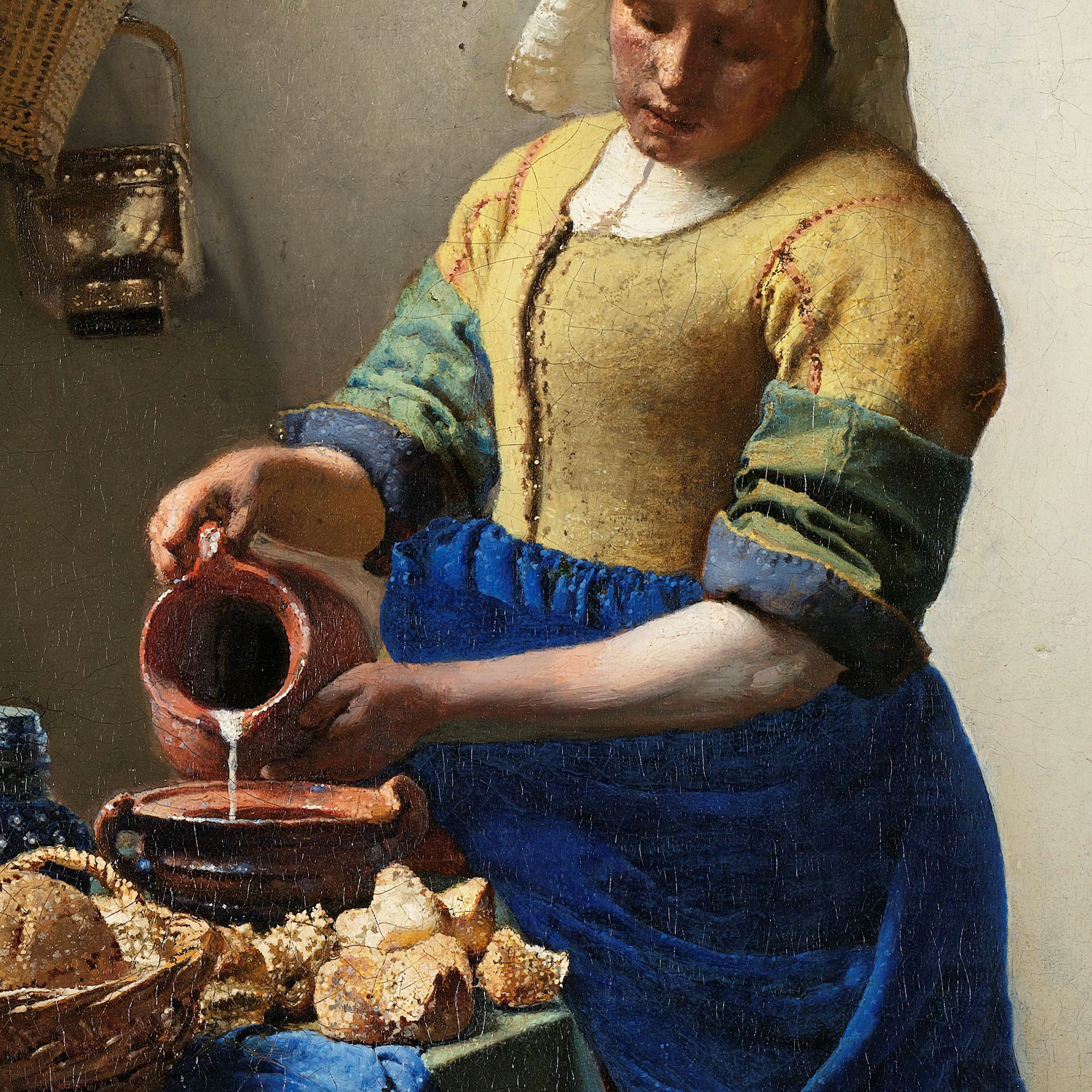1
/
of
6
The Milkmaid (1660)
The Milkmaid (1660)
Regular price
£12.45 GBP
Regular price
Sale price
£12.45 GBP
Taxes included.
Quantity
Couldn't load pickup availability
"The Milkmaid" by Johannes Vermeer is a luminous example of Dutch Golden Age painting, capturing an intimate domestic scene with extraordinary attention to detail. The work depicts a kitchen maid pouring milk from an earthenware jug into a bowl, her focused expression and steady hands suggesting complete absorption in this everyday task. Vermeer's mastery of light is evident in how it streams through the window, creating subtle highlights on the maid's yellow bodice and the bread basket on the table.
What sets this painting apart is Vermeer's revolutionary use of ultramarine blue, an extremely expensive pigment typically reserved for portraits of nobility or religious scenes. By applying it to a servant's modest garment, Vermeer elevated the status of genre painting and challenged social hierarchies. The careful rendering of textures - from the rough bread to the gleaming brass container - demonstrates his exceptional observational skills and technical prowess.
Painted during the 1650s, when the Dutch Republic was experiencing unprecedented prosperity, this work reflects the period's celebration of domestic life and labour. Vermeer chose to portray the maid with dignity and purpose, rather than as a comedic or moralistic figure common in contemporary Dutch art. The painting's composition creates a sense of suspended time, inviting viewers to contemplate the beauty in ordinary moments. This handling of light and subject matter influenced generations of artists, from the Impressionists to modern-day photographers.
The work showcases Vermeer's unique ability to transform everyday scenes into moments of profound contemplation. Through his careful manipulation of perspective and light, he created an atmosphere of quiet concentration that continues to resonate with viewers centuries later. His choice of subject matter and treatment thereof reveals his deep appreciation for the dignity of labour and the poetry of daily life.
View full details
What sets this painting apart is Vermeer's revolutionary use of ultramarine blue, an extremely expensive pigment typically reserved for portraits of nobility or religious scenes. By applying it to a servant's modest garment, Vermeer elevated the status of genre painting and challenged social hierarchies. The careful rendering of textures - from the rough bread to the gleaming brass container - demonstrates his exceptional observational skills and technical prowess.
Painted during the 1650s, when the Dutch Republic was experiencing unprecedented prosperity, this work reflects the period's celebration of domestic life and labour. Vermeer chose to portray the maid with dignity and purpose, rather than as a comedic or moralistic figure common in contemporary Dutch art. The painting's composition creates a sense of suspended time, inviting viewers to contemplate the beauty in ordinary moments. This handling of light and subject matter influenced generations of artists, from the Impressionists to modern-day photographers.
The work showcases Vermeer's unique ability to transform everyday scenes into moments of profound contemplation. Through his careful manipulation of perspective and light, he created an atmosphere of quiet concentration that continues to resonate with viewers centuries later. His choice of subject matter and treatment thereof reveals his deep appreciation for the dignity of labour and the poetry of daily life.
